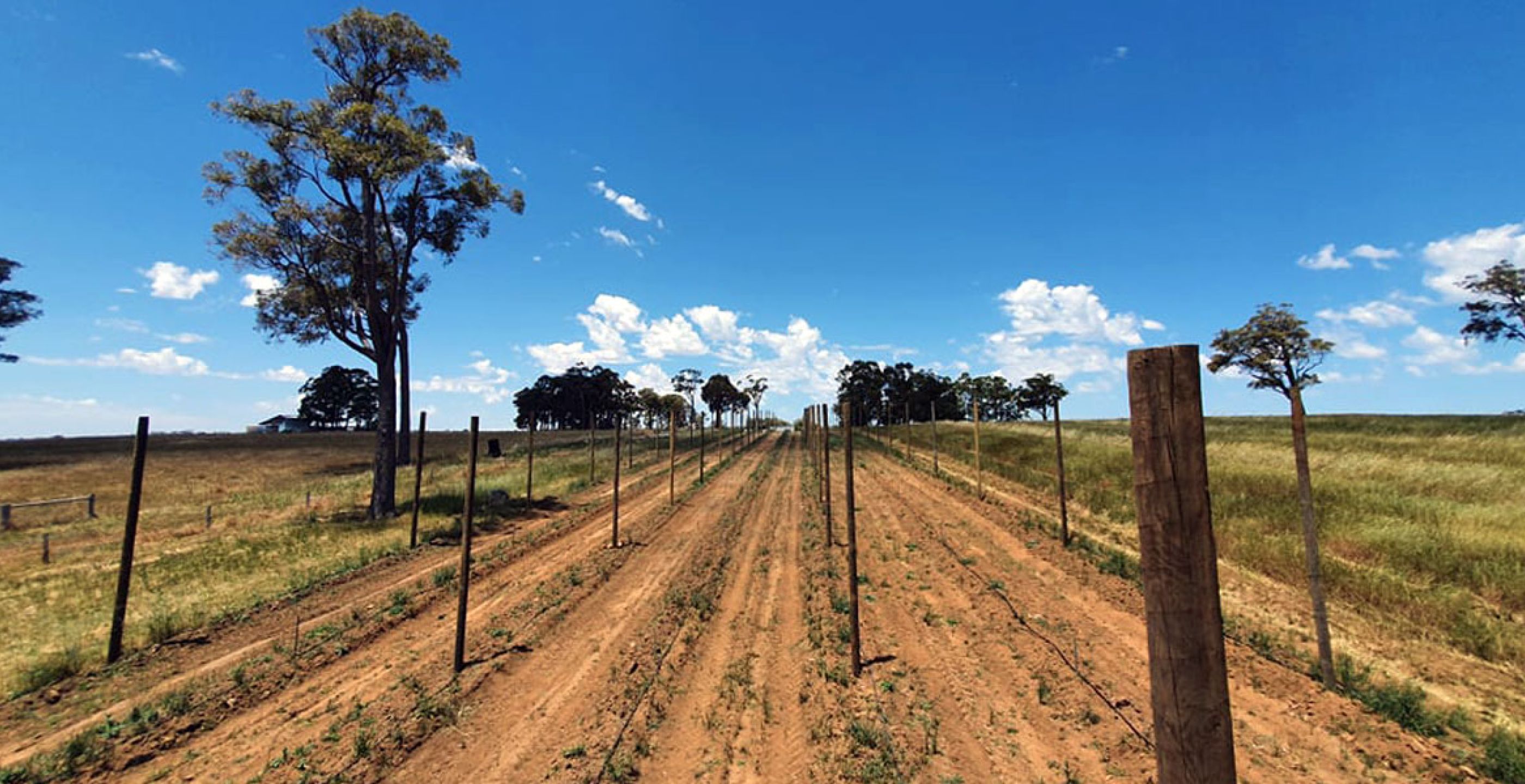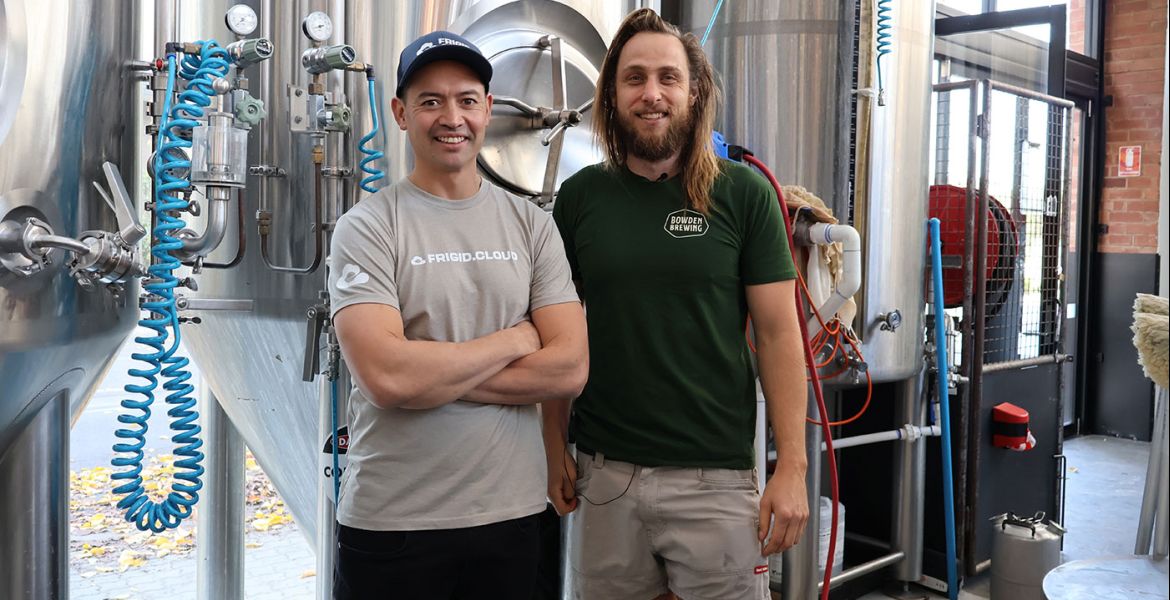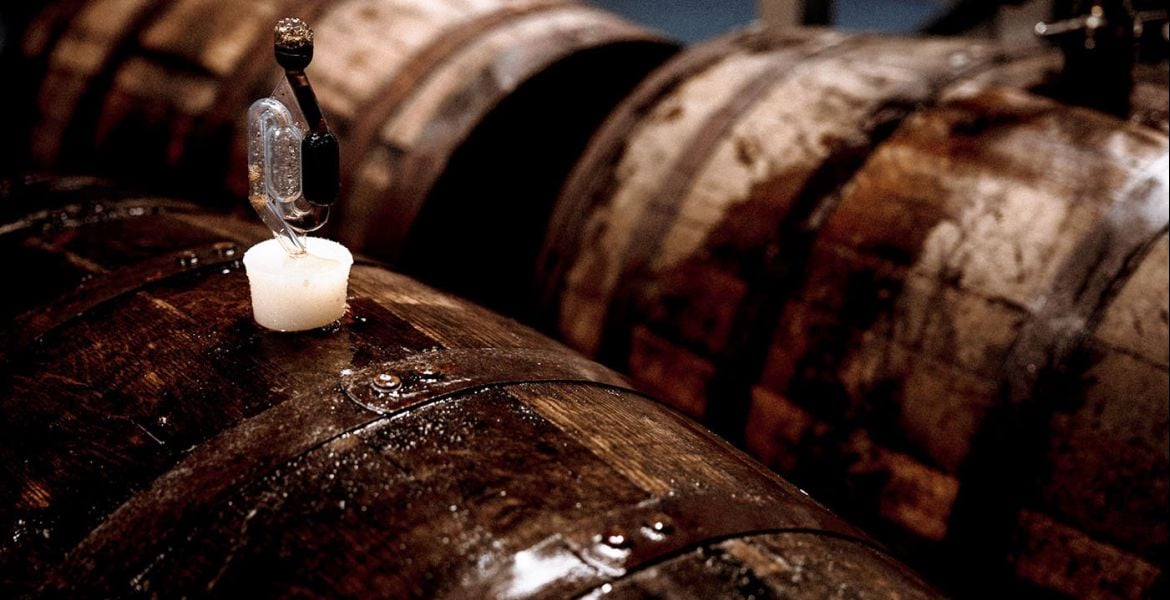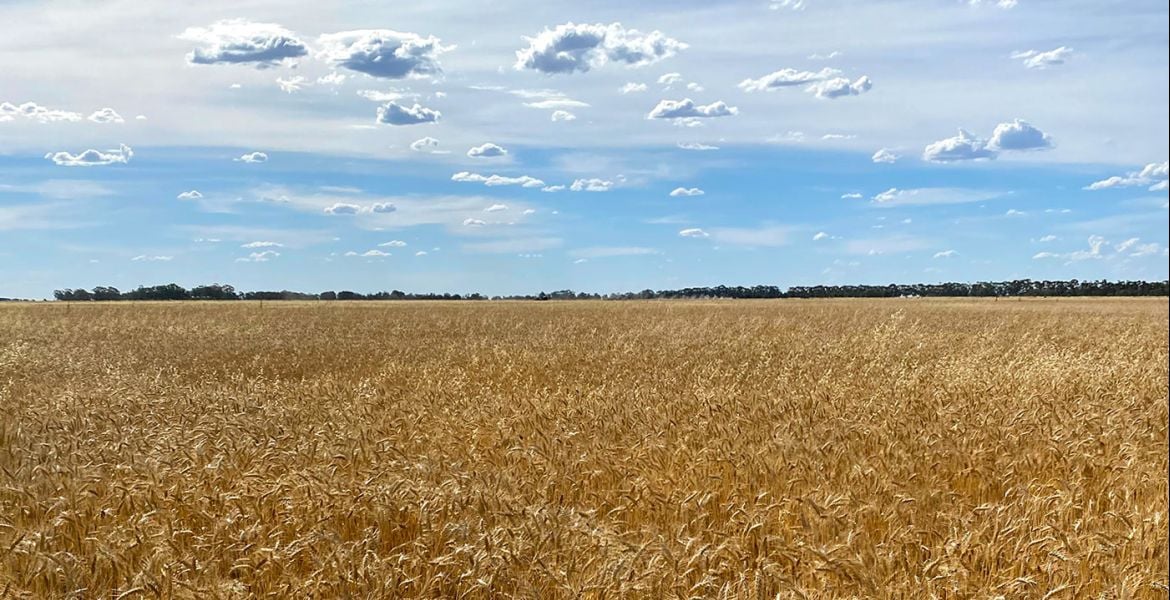The journey to becoming a brewer can at times feel like a hobby that gets out of hand: garage spaces turn into homebrew setups with room for neither cars nor people. And South West Hops’ journey from small-scale farmer to supplying some of Western Australia’s breweries with fresh hops is a similar one. And, like many breweries, they have big plans for the future.
The family-run hop supplier launched in 2014 in Bridgetown when Chris Meagher planted a single Cascade rhizome.
“I was growing my own vegetables, raising my own animals and making beer,” he says of the time.
Before too long, he started buying more varieties from the southwest region of WA as well as other parts of the country and things, well, cascaded from there.
“I stumbled upon some hops and started to grow one variety," he says, "and that soon grew to 23 varieties.”
Joining Chris in the venture is his partner, Megan Richards, and son Ben, while their other son, Louis, also works on the farm with Megan’s parents helping out with harvest.
“So, generationally, it’s three tiers and we’re going hard for it,” Chris says.
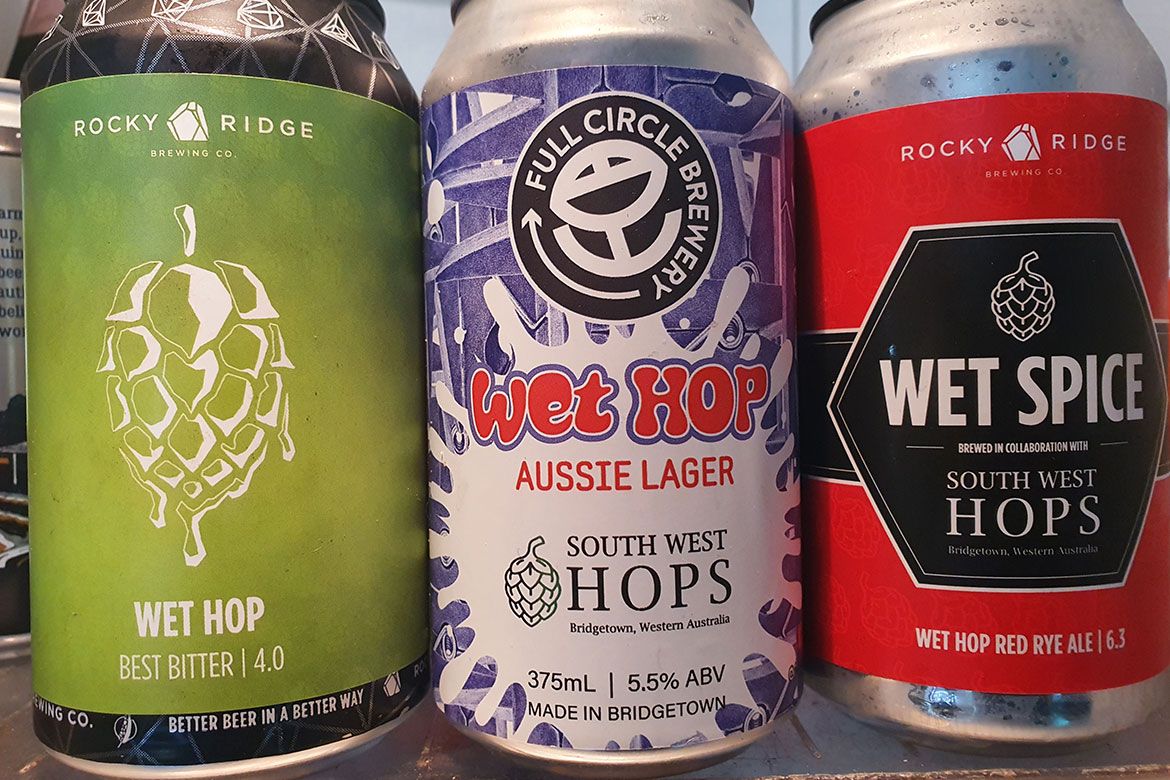
Going hard feels like the right phrase, with Chris and his family having upsized considerably from the four-acre property on which they started. In April last year, they moved to a hundred-acre farm just down the road in Yornup, bought due to its potential as a hop farm.
“There’s a gazillion litres of water here, viable soil, and just perfect conditions for what we’re trying to do,” Chris says.
At the moment, they have planted little more than an acre of hops but they plan to expand that to 20 acres and invest in considerable shed space and machinery. They’ve also trimmed their number of varieties from 23 to five, working closely with one well-loved local brewery to help with that selection.
“We’ve spent a lot of time with Hamish Coates and Ricky Watts from Rocky Ridge," Chris says, "and they’ve really supported us and pushed what we’re trying to achieve.”
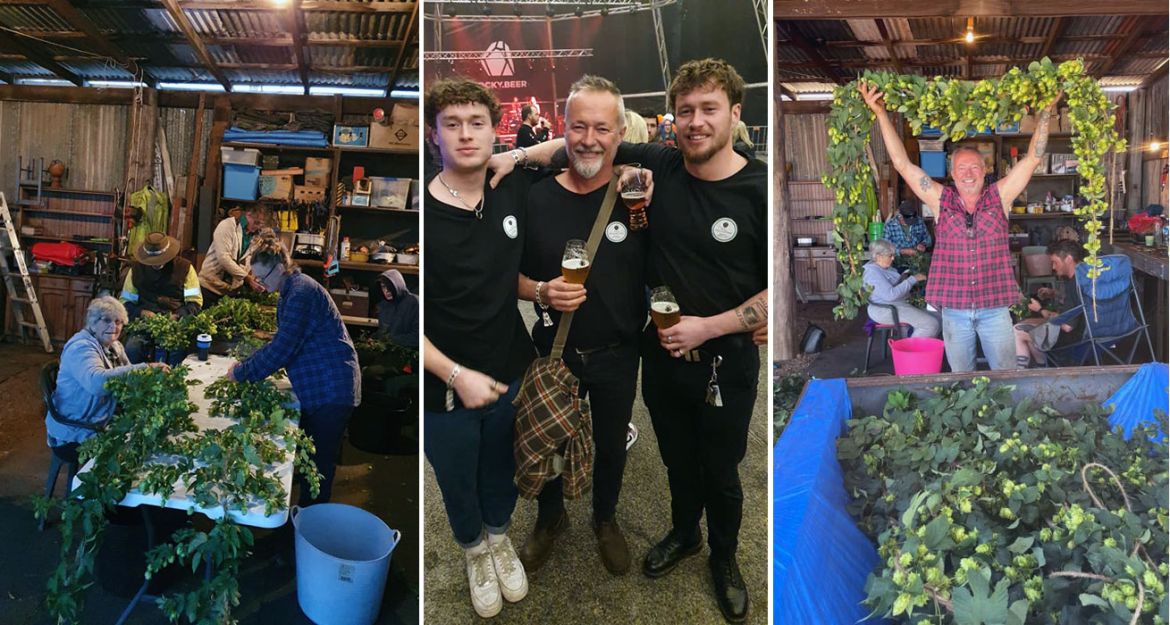
The varieties they're now focusing on are Victoria (which share a mother variety with Galaxy), Flinders, Columbus, Chinook and Vienna Gold. Chris says they wanted to provide brewers with less common varieties as well as the kind of mix being requested by WA’s brewers. After all, their decision to launch commercially was driven by the growth of the state's beer industry and demand among local breweries for fresh hops.
Earlier this year – their first harvest at the new farm – saw them amass 114kg of hops, no small feat given the harvesting was done by one family by hand and that one hop flower weighs around a gram; in other words, 114,000 hop flowers picked by hand.
“I’m really proud of that achievement because it was bloody hard work we put in as a family,” Chris says.
As well as working closely with Rocky Ridge, they’ve supplied fresh hops to Full Circle in nearby Bridgetown, and are focused on getting South West Hops into the hands of the many breweries that call the region home. Although fresh or wet hops have been the focus to date, Chris says they want to invest in drying and pelletising capabilities in the future so they can supply local hops throughout the year.
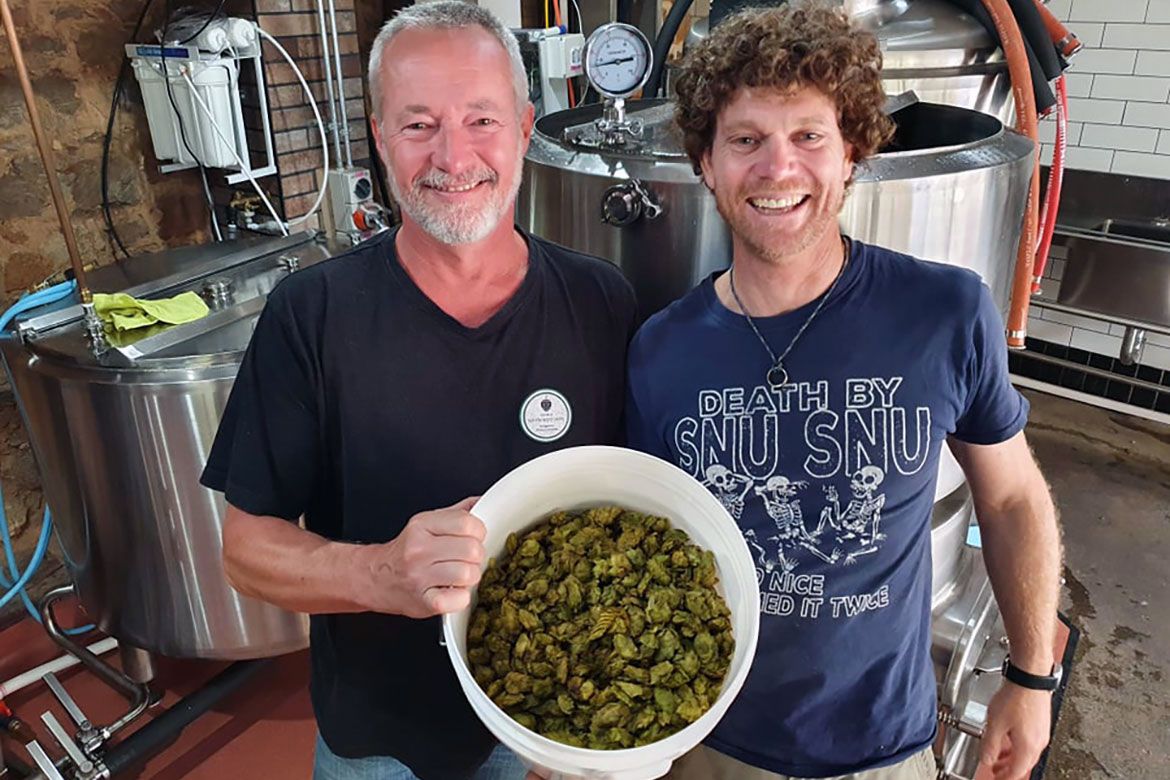
Once you understand more about the business, it's easy to see why they share a close bond with the farm-based Rocky Ridge: South West Hops is committed to regenerative and environmentally-minded farming practices. Their substantial dams use solar pumps to irrigate the hops and they’re planting native trees and shrubs to offset their carbon emissions while investing in sustainability initiatives in other parts of the farm too.
Chris says it’s a holistic approach to farming and the way he's always grown crops and raised animals.
“It’s 100 percent about the soil,” he says. “If the ecology of the soil is healthy, then your plants can better withstand pests and disease.
“It’s always been a strong philosophy for me, even if the terminology of regenerative farming is newer.”
It's a philosophy that applies throughout the farm too.
“We’re growing organically with the regenerative farming practices," he adds, "and the business will grow organically too as we expand.”
You can read other articles in our Collaborators series, which shines a spotlight on businesses existing around the craft beer industry, here.



